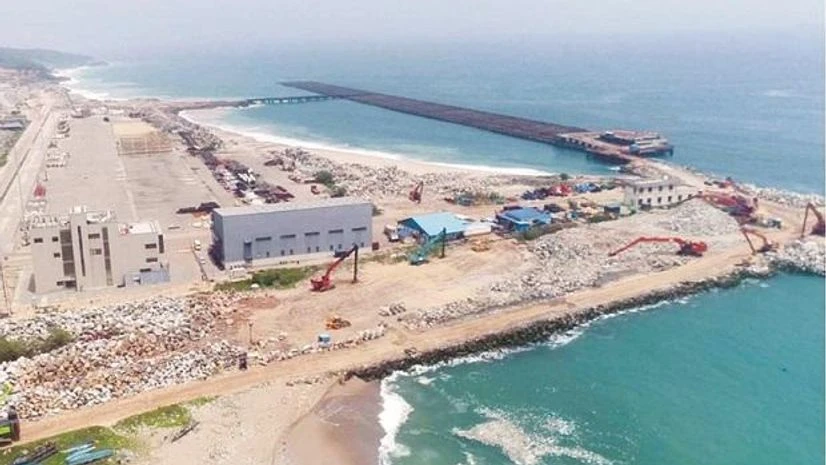The Centre has given sanction to Adani’s Vizhinjam Port in Kerala to operate as a transshipment port -- a first for the country.
A transshipment port is a crucial hub where cargo is transferred from one big vessel to several smaller ones before they reach the final port of discharge. It will now help India in its ambition to become a manufacturing hub.
Approximately 75 per cent of India’s transshipment cargo is currently processed at ports overseas, with destinations such as Colombo, Singapore, and Klang handling about 85 per cent of this cargo.
The proposal to designate it as a customs-notified port has also been made.
Current regulations require the shipping ministry’s nod to prevent competing projects from being permitted before capacity at operational ports is saturated, according to a report in The Economic Times (ET).
“This approval paves the way for customs to set up an office at Vizhinjam port. It will be India’s first full-fledged deep water transshipment port. A final nod from the Central Board of Indirect Taxes and Customs (CBIC) is expected in the coming three months,” a senior government official told ET.
More From This Section
The ET reported that in December 2015, Adani Ports and Special Economic Zone Limited (APSEZ) initiated the international transshipment project in Vizhinjam, Kerala.
Originally targeted for completion within four years by 2019, the Rs 7,700 crore deep water seaport project is now anticipated to commence operations within the current financial year.
The project aims to capture a portion of the Indian cargo market, which amounts to over a million containers transshipped annually through foreign ports like those in Colombo, Sri Lanka.
Container volumes are measured in twenty-foot equivalent units (TEUs), with each TEU approximately representing a standard-sized container.
According to APSEZ, the port provides extensive automation to ensure rapid vessel turnaround, coupled with cutting-edge infrastructure capable of handling Megamax containerships, which are currently the largest vessels in operation worldwide.
In its initial phase, the port’s capacity is set to accommodate one million TEUs, with an additional 6.2 million TEUs planned for subsequent phases.
APSEZ is scheduled to announce its financial results for January-March 2024 on May 2. During the fiscal year 2023-24, the company recorded a 24 per cent year-on-year increase, handling 420 million metric tonnes of cargo worldwide.

)
